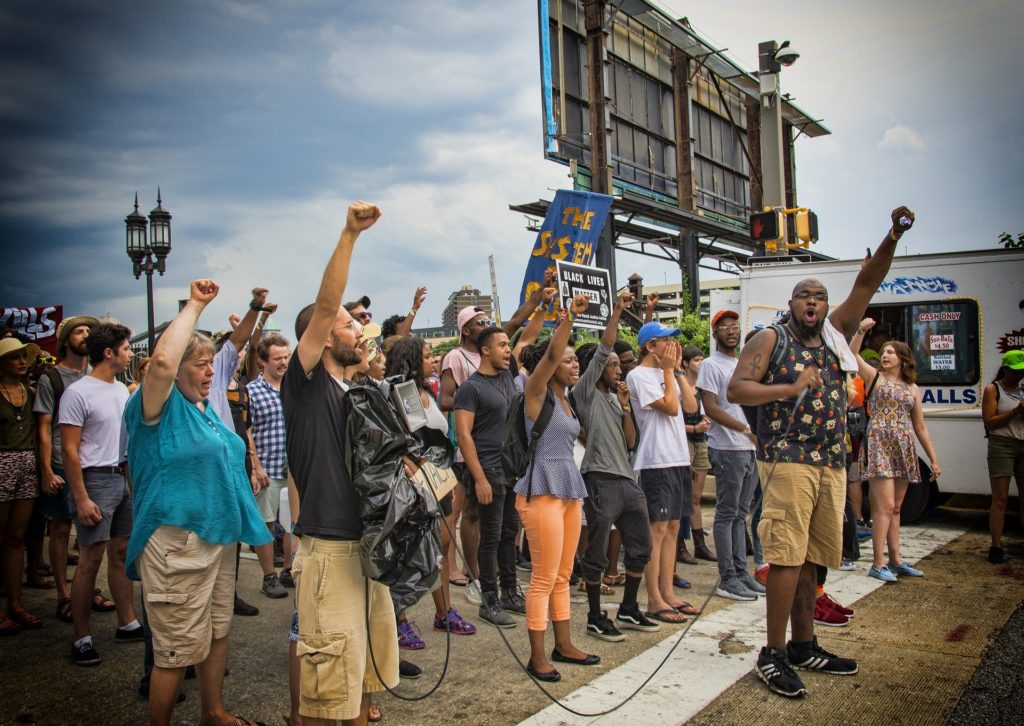As the cannabis sector keeps growing around the world, many people are noticing that there are critical flaws that require attention like discrimination against people of color in the industry. It is reported that harassment exists and not only black people who consume cannabis suffer from it, but also entrepreneurs who need loans for their projects have them denied for nor relevant reason.
The black community raises its voice against discrimination in the cannabis industry


The social equity in the cannabis industry worldwide is a complex problem involving dozens of entrepreneurs with different economic, racial, and cultural conditions that prevail in the current market.
The black community is one of the most affected by this problem in the cannabis industry as they suffer discriminations and unfair treatment in comparison with white people. This has pushed them to raise their voices around the world and demand equal treatment.
If you want to know more about cannabis, how the black community suffers from discrimination in the cannabis industry, how Hood Incubator is promoting a change and helping small businesses, and to find out the latest cannabis news, download the Hemp.im mobile application.
The black community gets harassed for consuming cannabis
According to unofficial figures, black people are four times more likely to be arrested for using cannabis than white people. This is despite the fact that consumption rates are similar.
Harassment occurs in places where the use of cannabis is illegal. Policemen use skin color as a pretext to harass people of color that consume cannabis. In contrast, white consumers do not receive a fine, just a warning.
A graduate of the Yale Business School, Ebele Ifedigbo is a co-founder of Hood Incubator and saw cannabis legality as the perfect opportunity to build economic and political power in black communities and bring a balance in society.
To do this, Ifedigbo, in conjunction with Lanese Martin and Biseat Horning, created a business accelerator, specially designed for entrepreneurs of color to make the transition from selling illegal cannabis to running a business.
Hood Incubator lend a hand to small cannabis businesses that want to grow and expand
The idea of placing these types of entrepreneurs in law is because, according to Ifedigbo, these people already have experience in the cannabis market and can compete against large corporations, before they take over the industry.
In this way, Hood Incubator aims to connect the black market with the legal cannabis industry. The firm helps those in the informal cannabis industry jump into the licensed formal economy and establish their business.
The company, which functions as an NGO, helps entrepreneurs to capitalize on matching their legal competitors. The incubator provides support for renting premises and obtaining a sales license .
These conditions allow entrepreneurs to be at the level of companies backed by venture capital. Such competitors meet regulatory burdens and pay high taxes.
Discrimination goes beyond consuming cannabis as many entrepreneurs cannot get bank loans
Entrepreneurs of color are denied access to bank loans for their cannabis business. And they survive in fear of federal arrests, forfeiture of assets, and prosecution.
Despite this, Ifedigbo alleges that Hood Incubator represents more than a business incubator. This is an opportunity for this sector of society, although he clarified that it is still too early to assess the success of the program, and a lot of work is needed for this project to succeed.
It is worth mentioning that the organization based in Oakland, California, is a non- profit since it works through alliances such as the one made with Eaze, a platform that sells cannabis online.
__
(Featured Image by Bruce Emmerling via Pixabay)
DISCLAIMER: This article was written by a third party contributor and does not reflect the opinion of Hemp.im, its management, staff or its associates. Please review our disclaimer for more information.
This article may include forward-looking statements. These forward-looking statements generally are identified by the words “believe,” “project,” “estimate,” “become,” “plan,” “will,” and similar expressions. These forward-looking statements involve known and unknown risks as well as uncertainties, including those discussed in the following cautionary statements and elsewhere in this article and on this site. Although the Company may believe that its expectations are based on reasonable assumptions, the actual results that the Company may achieve may differ materially from any forward-looking statements, which reflect the opinions of the management of the Company only as of the date hereof. Additionally, please make sure to read these important disclosures.
First published in Nacion Cannabis, a third-party contributor translated and adapted the article from the original. In case of discrepancy, the original will prevail.Although we made reasonable efforts to provide accurate translations, some parts may be incorrect. Hemp.im assumes no responsibility for errors, omissions or ambiguities in the translations provided on this website. Any person or entity relying on translated content does so at their own risk. Hemp.im is not responsible for losses caused by such reliance on the accuracy or reliability of translated information. If you wish to report an error or inaccuracy in the translation, we encourage you to contact us.



Comments are closed for this post.